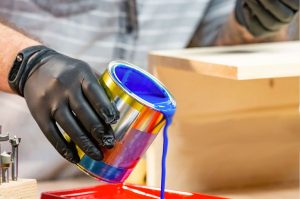What Fiberglass Resin To Use ?
Fiberglass resins are a crucial component in composite material projects, offering structural strength, chemical resistance, and durability. There are several types of resins, each with specific properties and applications. Here’s an overview of the most common types, their uses, and recommended application methods.
Polyester Resin
Description:
- Polyester resin is the most widely used fibreglass resin. It’s economical and provides good mechanical properties, chemical resistance, and durability. It cures a rigid finish and is compatible with most fibreglass fabrics.
Applications:
- Ideal for general fibreglass repair, marine applications (except below-the-waterline repairs), automotive body repairs, and making moulds.
Application Method:
- Mix with a MEKP (Methyl Ethyl Ketone Peroxide) catalyst at the manufacturer’s recommended ratio.
- Apply with a brush or roller. For larger areas, a spray gun may be used.
Work in layers, allowing adequate curing time as specified by the manufacturer.
Vinylester Resin
Description:
- Vinylester resin offers better mechanical toughness and resistance to water and chemicals than polyester resin. It forms a strong bond with fibreglass and has a lower shrinkage rate.
Applications:
- Suitable for marine applications, especially below-the-waterline repairs, and for projects requiring higher resistance to water and chemicals.
Application Method:
- Like polyester, it’s mixed with a MEKP catalyst.
- Can be applied using brushes, rollers, or spray equipment.
Ensure proper ventilation due to its potent smell and potential health risks.
Epoxy Resin
Description:
- Epoxy resin is known for its superior mechanical properties, excellent adhesion, low shrinkage, and high resistance to moisture and chemicals. It’s more expensive than polyester and vinylester but offers the best performance for demanding applications.
Applications:
- Highly recommended for boat building, repair below the waterline, aerospace applications, and any project requiring maximum strength and durability.
- Also used for laminating, coating, and casting where high strength is needed.
Application Method:
- Mixed with a specific hardener in a ratio provided by the manufacturer.
- Apply with brushes, rollers, or squeegees for laminating. For casting, pour into molds.
- Epoxy has a longer working time than polyester and vinylester, which can be advantageous for complex projects.
Polyurethane Resin
Description:
- Polyurethane resin is not as common for fiberglass work but is used for its excellent flexibility, impact resistance, and durability. It has specific uses in composites.
Applications:
- Suitable for making flexible parts, molds, or items requiring high impact resistance.
Application Method:
- Typically mixed with a hardener or catalyst.
- Due to its quick setting time and potential bubbles, vacuum degassing and pressure casting methods are recommended for bubble-free castings.
Application Tips:
- Surface Preparation: Ensure surfaces are clean, dry, and properly sanded for better adhesion.
- Mixing: Follow the manufacturer’s instructions for mixing ratios and curing times. Mix thoroughly to ensure a uniform chemical reaction.
- Ventilation: Work in a well-ventilated area to avoid inhalation of harmful fumes.
- Safety Gear: Wear gloves, safety glasses, and a respirator to protect against chemicals and dust.
- Layering: For projects requiring thickness, build up layers of fiberglass and resin, allowing adequate curing time between layers.
Selecting the right resin depends on the project requirements, including mechanical strength, chemical resistance, environmental exposure, and budget. Always follow the manufacturer’s recommendations for mixing, application, and safety precautions to ensure the best results.
Creating a high-quality mould that can produce multiple car bodies or parts is possible.
Call (02) 9820 1595
For Expert fibreglass advice
or send a message below
We help you create successful projects.
Since opening in 1951 our range of products has grown massively. So has our knowledge. There is not much we haven't seen before so call us first. We can save you making costly mistakes.


